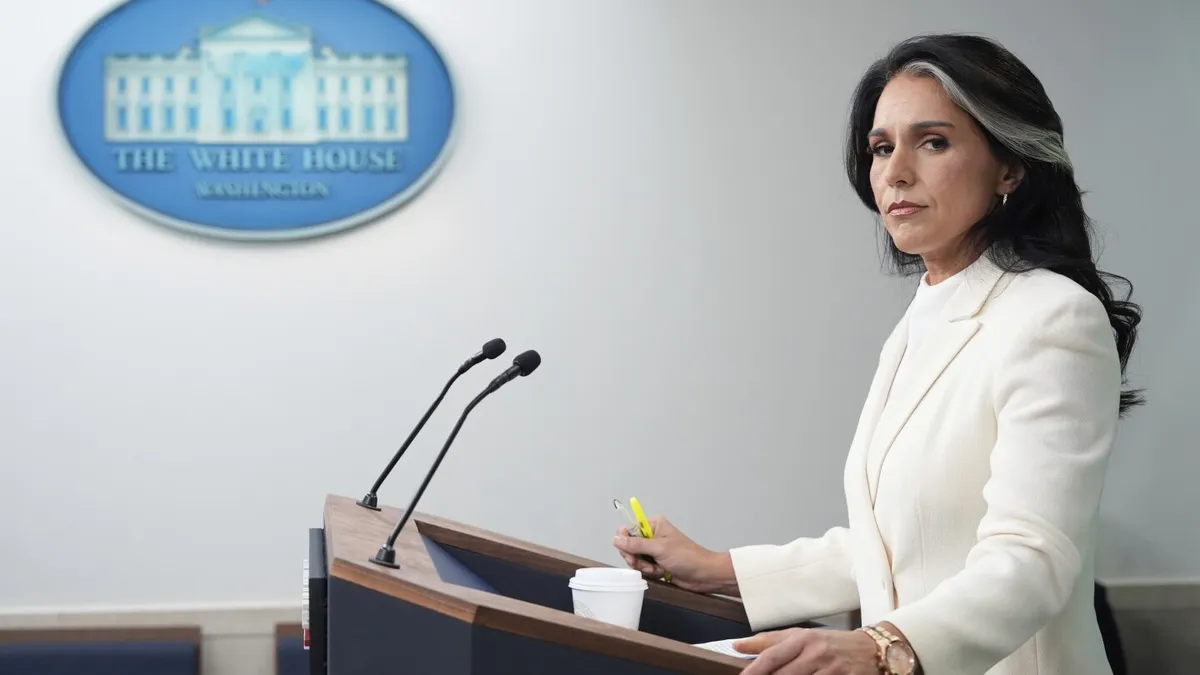
The Trump administration announced on Tuesday that it is revoking the security clearances of 37 current and former national security officials. This move has been interpreted as a retaliatory act against public servants within the federal government’s intelligence community. The decision is part of a broader campaign by the administration to target individuals perceived as adversaries.
A memo from Director of National Intelligence Tulsi Gabbard claims that the individuals affected have engaged in the “politicization or weaponization of intelligence” to pursue personal or partisan objectives. The memo further alleges that these officials failed to safeguard classified information and did not adhere to professional analytic tradecraft standards, among other unspecified “detrimental” actions. However, the memo did not provide any evidence to substantiate these serious accusations.
Many of the officials targeted by this decision have left government roles years ago, having served in both senior national security positions and lower-profile roles. Some were involved in critical assessments regarding Russian interference in the 2016 presidential election, a topic that has long provoked frustration from Trump. Additionally, several of these individuals expressed their concerns about the administration by signing a critical letter in 2019, which was recently highlighted by right-wing provocateur and Trump ally Laura Loomer.
This action is seen as part of a larger strategy by the Trump administration to use government resources against perceived adversaries. Critics argue that the revocation of security clearances is a tactic that could deter dissenting voices within the national security community, which typically relies on a diversity of viewpoints to develop comprehensive assessments. National security lawyer Mark Zaid, whose clearance was also revoked by the administration, criticized these actions as unlawful, asserting that they deviate from established laws and policies designed to prevent such retaliatory measures.
In defense of the revocation, Gabbard stated that this decision was directed by Trump himself. “Being entrusted with a security clearance is a privilege, not a right,” she wrote on social media platform X. She emphasized that those in the intelligence community who compromise their oath to the Constitution and prioritize personal interests over the American people have violated the trust they are sworn to uphold.
The suspension of security clearances comes amidst ongoing efforts by Gabbard and other Trump administration officials to re-examine the intelligence community's findings on Russian election interference. This includes declassifying numerous documents that aim to cast doubt on the legitimacy of previous assessments. Multiple government investigations have consistently concluded that Russia interfered in the 2016 election through various means, including a hack-and-leak operation targeting Democratic emails and a social media campaign designed to disrupt and influence public opinion.
The revocation of security clearances poses significant challenges not only for current government employees but also for former officials who require access to sensitive information in their private-sector jobs. The stripping of clearances could hinder their ability to perform their roles effectively. On his first day in office, Trump indicated that he would revoke the security clearances of over four dozen former intelligence officials who signed a letter in 2020, which suggested that the Hunter Biden laptop saga displayed characteristics of a “Russian information operation.”
Additionally, Trump has revoked the clearances of former President Joe Biden and former Vice President Kamala Harris, while also attempting to target lawyers at notable law firms, though federal judges ultimately blocked those efforts. Some individuals affected by the recent clearance revocations only learned of their status through media reports, leaving them to consider potential legal action.